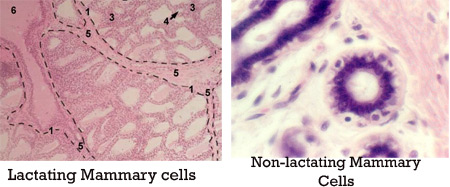A chemical commonly found in household fittings has been found to affect the development of the mammary gland in rats. New research has now shown that this very chemical could affect the breasts’ genomic profile.
Jose Russo and his colleagues from the Fox Chase Cancer Center in Philadelphia together with their colleagues from the University of Alabama in Birmingham, US conducted this research, which feeding lactating rats with butyl benzyl phthalate (BBP), which their offspring then absorbed via breast milk.
The offspring of the mice ingested levels of the chemical estimated to be nearly equivalent to the Environmental Protection Agency’s safe dose limit of BBP for humans.
BBP is a widely used plasticizer, an additive used to soften polymers and is found in household fittings such as pipes, vinyl floor tiles and carpet backing. This chemical is known to be an endocrine disruptor, which mimics the effect of hormones. Also, endocrine disruptors have been known to damage wildlife. Further, they have also been indicated to reduce sperm counts and increase neurological problems in humans.
The researchers found that BBP had a transitory effect on certain characteristics of the female offspring of the rats, such as the ratio of uterine weight to body weight and the genetic profile of the mammary gland.
“We are the first to report that neonatal/prepubertal exposure to BBP induced modifications in the gene expression of the mammary tissue,†said Dr.Russo.
Even though these effects wore off once exposure to BBP was removed, subtle changes in the mammary gland could have an effect in later life.

